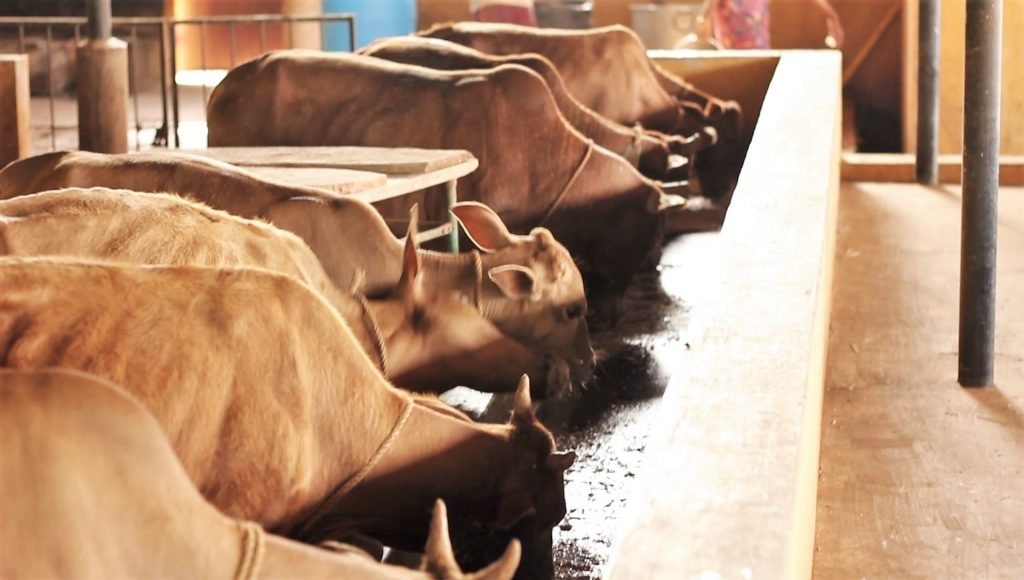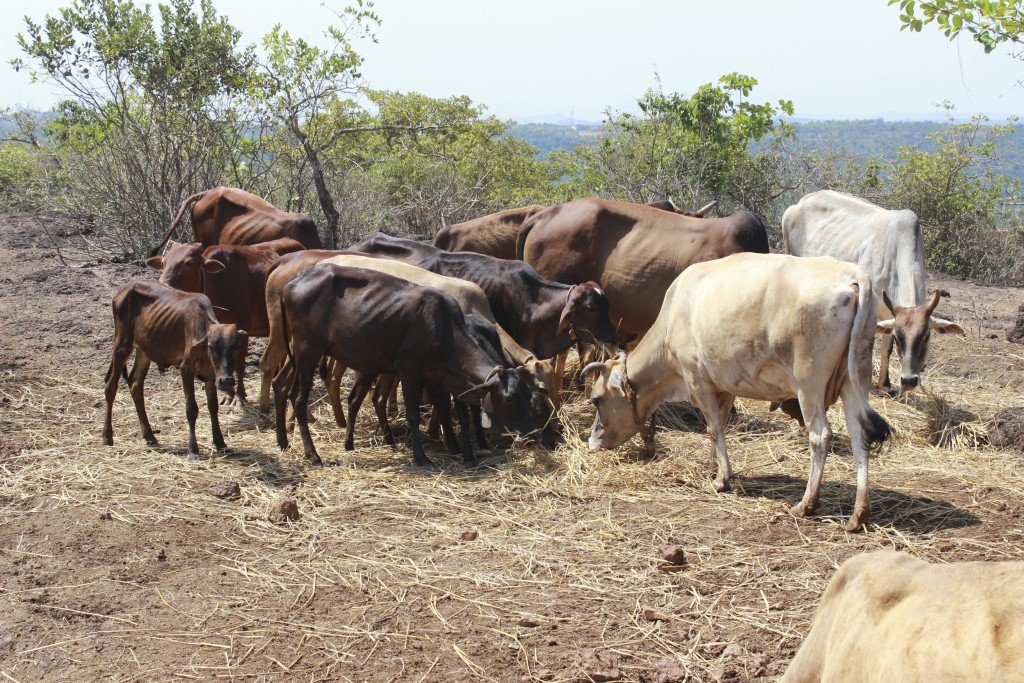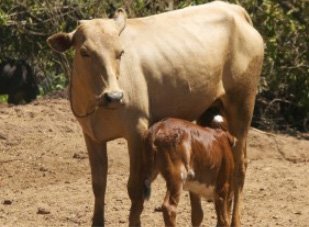Dairy Farming


What is Dairy Farming?
Dairy farming refers to the occupation of commercial milk production through raising cattle. Milk and milk-derived dairy products are commercialized through dairy farming and this industry generally employs cow breeds of high milk yield. India has a rich source of milking cows with more than 30 indigenous breeds of cows. The cow population of India is about 120 million and India enjoys the status of the largest milk producer in the world.
Types of cow farming
- Household Dairy Farming:
This is the conventional form of dairy farming customized in India for the family structure and size. Production of milk and farm labor are achieved through this activity. This is a common practice across Indian communities and is an age-old system prevailing. This farming practice supports agriculture through manure. The agriculture, in turn, provides fodder for the cows mostly through its by-products like the hay, dried husks of pulses, etc. - Commercial Dairy Farming:
Dairy farming is a profitable business in India, providing an excellent opportunity for self-employment of unemployed youth. Besides, it acts as an important source of additional income to small and marginal farmers and agricultural laborers. The success stories of brands like Amul, Nandini, etc. have established the potential of commercial cow farming in India.
The current status of knowledge on Indian cow breeds and the superior quality of their milk has created much higher demand for the milk of indigenous cow breeds at a premium price. This has made several small and marginal dairy farmers opt for local mini cow breeds for milk production. Maintenance of these cows is economical and less labour-intensive.
Key Aspects of Cow Farming
- Food : Provision for adequate food for the cows is an essential requirement for dairy farming. Drinking water makes the major component of the food of cattle and providing clean drinking water is very important for keeping the cows with good health and vigor. Fodder represents the next major food requirement of the cows. Fodder comprises the bulk food material for cows maintained in sheds. Grains, oil cakes, etc. constitute the nutritional supplements for cows in traditional dairy farming. Modern dairy farming, however, employs other types of nutritional supplements like algae, formulations derived from essential components of proteins, fatty acids, etc. The green fodder comprising grasses and green leaves of good fodder trees like the drumstick, jackfruit, subabul, etc. constitute the next components of food for dairy cows. This provides nutrition, immunity, and vigor for the cows. Pasture grazing is the traditional practice of cow rearing and has been identified as the best diet for the cows. This food enhances their immunity and improves the quality of milk produced by them. This is proved scientifically by the presence of Omega-3 Fatty Acids and Conjugated Linoleic Acid (CLA) in their milk. These compounds are contributing towards the long-term health of human beings as well. All types of food items offered to the cows need to be hygienic and devoid of pollutants like pesticides, heavy metals, biological wastes, etc.
- Shelter and Hygiene : The hygiene of the cow sheds is important in commercial dairy farming as the number of cows that needs to be accommodated is higher. Overcrowding needs to be avoided to keep the cows without any stress and with cool temperament. Hygiene of the sheds and the individual cows and calves is crucial for maintaining the general health of the cows as well as the production of clean milk. Cleaning, washing, and disinfection of the sheds at regular intervals is an essential part of dairy farming. Bathing the cows is also equally important to keep them healthy and clean.
- Care : Cows are quite intelligent and emotional animals and can understand and reciprocate to care and affection offered to them by the care-takers. Special care is needed for the post-parturition period of milking cows and young calves. The entire cattle herd need to be protected against common infectious diseases through vaccination and timely treatment of ailments, injuries, etc. Building an emotional repo with the individual member of the herd by the care-taker will take care of the behavior and wellbeing of the cows through a long way, which in turn will be a key element towards the success of dairy farming.
Future Trends in Dairy Farming
The superiority of the products of Indian cow breeds has been established through scientific facts and accepted by a large sector of the society including common man to Research Scientists. The wide range of medicinal potential of cow urine and nutritional properties of the A2 milk produced by Indian cows have been well-known today and hence there is an increase in demand for these products, even with a premium price. This will be a turning point in dairy farming and days will come where low- milk cow breeds like Kapila, Vechur, etc. also come to the forefront of the dairy industry.
Help Us Now

Donate to Surabhivana Gaushala to save and protect Indian Cow Breeds.
All donations are exempt under Section 80G of the Income Tax Act, 1961. All donation receipts shall be mailed to the address given by the donor or may be collected in person, at request.
Click the below button to donate through credit cards/debit cards or Net Banking via Razor Pay.
